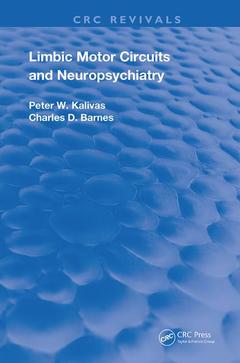Limbic Motor Circuits and Neuropsychiatry Routledge Revivals Series
Auteurs : Kalivas Peter W., Barnes Charles D.

Date de parution : 10-2020
15.6x23.4 cm
Disponible chez l'éditeur (délai d'approvisionnement : 12 jours).
Prix indicatif 70,91 €
Ajouter au panierDate de parution : 04-2019
15.6x23.4 cm
Disponible chez l'éditeur (délai d'approvisionnement : 12 jours).
Prix indicatif 209,19 €
Ajouter au panierThèmes de Limbic Motor Circuits and Neuropsychiatry :
Mots-clés :
Locomotor Activity; Nucleus Accumbens; environmental stimuli; Prefrontal Cortical; biomedical scientists; Pedunculopontine Tegmental Nucleus; neuropsychiatric disorders; Gaba Antagonist; limbic motor circuits; Gaba Release; neural circuitry; Ventral Pallidum; Increased Fos Expression; D2 Receptor; Extended Amygdala; Gaba Agonist; Olfactory Tubercle; PPI; Entopeduncular Nucleus; Infralimbic Cortex; Basal Forebrain; Ventral Striatum; Extrapyramidal Motor System; NAS Core; Nucleus Accumbens Neurons; Mesocorticolimbic DA Sy



